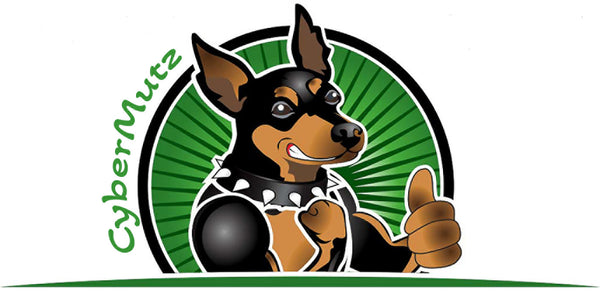
Dog Groups
Share
Dog breeds are categorized into different groups based on their original purposes, traits, and characteristics. The primary dog breed groups recognized by major kennel clubs, such as the American Kennel Club (AKC), are as follows:
• Purpose: Developed for hunting birds and retrieving game.
• Traits: Active, alert, and friendly; require regular exercise.
• Examples: Golden Retriever, Labrador Retriever, Cocker Spaniel, Pointer.
2. Hound Group
• Purpose: Bred for tracking and hunting using their keen sense of smell or sight.
• Traits: Independent, determined, and often vocal.
• Examples: Beagle, Bloodhound, Greyhound, Dachshund.
3. Working Group
• Purpose: Developed for tasks such as guarding, pulling sleds, and water rescues.
• Traits: Strong, intelligent, and loyal; often need structured training.
• Examples: Siberian Husky, Boxer, Doberman Pinscher, Great Dane.
4. Terrier Group
• Purpose: Originally bred to hunt and kill vermin or dig out burrowing animals.
• Traits: Energetic, feisty, and tenacious.
• Examples: Bull Terrier, Scottish Terrier, Border Terrier, Airedale Terrier.
5. Toy Group
• Purpose: Bred primarily as companion dogs.
• Traits: Small in size, affectionate, and often adaptable to apartment living.
• Examples: Chihuahua, Pomeranian, Maltese, Yorkshire Terrier.
6. Non-Sporting Group
• Purpose: Diverse group with various purposes not fitting into other categories.
• Traits: Varied in size, coat, and personality.
• Examples: Bulldog, Dalmatian, Poodle, Shiba Inu.
7. Herding Group
• Purpose: Bred to herd and manage livestock.
• Traits: Intelligent, energetic, and responsive to training.
• Examples: German Shepherd, Border Collie, Australian Shepherd, Corgi.
8. Miscellaneous Group
• Purpose: Includes breeds working toward full recognition by kennel clubs.
• Traits: Diverse traits; often rare or newly developed breeds.
• Examples: Portuguese Podengo, Biewer Terrier.
9. Foundation Stock Service (FSS) Program (AKC Specific)
• Purpose: Breeds not yet eligible for AKC registration but tracked for development.
• Traits: Highly varied in characteristics.
• Examples: Barbet, Belgian Laekenois.
CyberMutz.com (Dog-Themed Apparel & Accessories)
“CyberMutz.com – Explore a unique collection of dog-themed apparel, accessories, and gifts for pet lovers. Shop stylish, high-quality designs featuring your favorite dog breeds!” Category Page Descriptions: Dog Breed T-Shirts: “Show off your love for dogs with our exclusive breed-themed T-shirts. From German Shepherds to Chihuahuas, find high-quality, comfortable tees celebrating your favorite pup!” Dog Breed Pet Tank Tops: “Keep your furry friend stylish and comfortable with our dog breed-themed pet tank tops. Perfect for small and large dogs, these unique designs are a must-have!” Funny Dog-Themed Apparel: “Love dogs and humor? Our funny dog-themed apparel blends style with witty canine-inspired designs. Shop now for T-shirts, hoodies, and more!” Personalized Dog Merchandise: “Customize your dog lover’s gear with our personalized pet-themed apparel and accessories. Create a one-of-a-kind look for yourself or a perfect gift for a fellow dog enthusiast!”
CyberPussyKatz.com (Cat-Themed Apparel & Accessories)
“CyberPussyKatz.com – Celebrate your love for cats with our premium collection of feline-inspired apparel and accessories. Purr-fect designs for every cat lover!” Category Page Descriptions: Cat Breed T-Shirts: “Showcase your favorite feline friend with our stylish cat breed-themed T-shirts. From Maine Coons to Siamese, find the perfect tee for cat lovers!” Funny Cat-Themed Apparel: “Express your quirky side with our funny cat-themed T-shirts, hoodies, and more. Pawsome designs for those who love cats and humor!” Personalized Cat Merchandise: “Make it personal with custom cat-themed apparel and accessories. Create a unique gift or a special piece just for you!”
CyberMunkiez.com (Monkey-Themed Apparel & Accessories)
“CyberMunkiez.com – A fun collection of monkey-inspired apparel and accessories. Perfect for primate lovers who enjoy bold, playful, and unique designs!” Category Page Descriptions: Monkey-Themed T-Shirts: “Go bananas over our monkey-themed T-shirts! Whether you love capuchins, chimps, or gorillas, our designs bring out your wild side.” Funny Primate Apparel: “Add a touch of humor to your wardrobe with our hilarious monkey and ape-inspired apparel. Great for animal lovers and jungle enthusiasts!” Custom Monkey Merchandise: “Make it yours! Personalize your favorite monkey designs on T-shirts, hoodies, and more for a one-of-a-kind look.”
